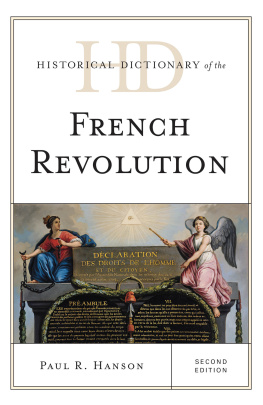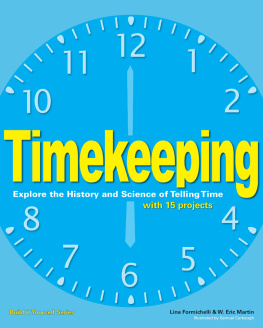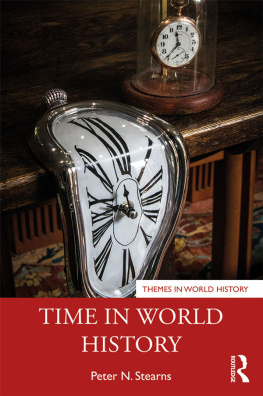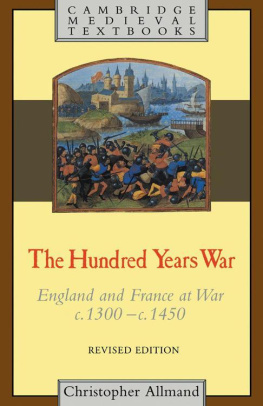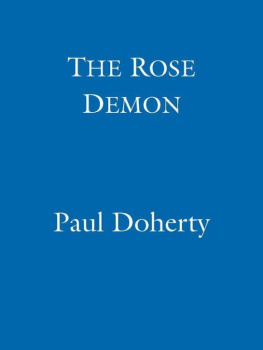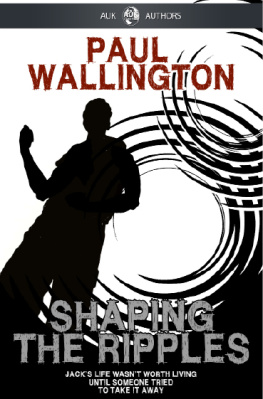SHAPING THE DAY
Shaping the Day
A History of Timekeeping in England and Wales 13001800
PAUL GLENNIE AND NIGEL THRIFT


Great Clarendon Street, Oxford OX2 6DP
Oxford University Press is a department of the University of Oxford.
It furthers the Universitys objective of excellence in research, scholarship,
and education by publishing worldwide in
Oxford New York
Auckland Cape Town Dar es Salaam Hong Kong Karachi
Kuala Lumpur Madrid Melbourne Mexico City Nairobi
New Delhi Shanghai Taipei Toronto
With offices in
Argentina Austria Brazil Chile Czech Republic France Greece
Guatemala Hungary Italy Japan Poland Portugal Singapore
South Korea Switzerland Thailand Turkey Ukraine Vietnam
Oxford is a registered trade mark of Oxford University Press
in the UK and in certain other countries
Published in the United States
by Oxford University Press Inc., New York
Paul Glennie and Nigel Thrift 2009
The moral rights of the authors have been asserted
Database right Oxford University Press (maker)
First published 2009
All rights reserved. No part of this publication may be reproduced,
stored in a retrieval system, or transmitted, in any form or by any means,
without the prior permission in writing of Oxford University Press,
or as expressly permitted by law, or under terms agreed with the appropriate
reprographics rights organization. Enquiries concerning reproduction
outside the scope of the above should be sent to the Rights Department,
Oxford University Press, at the address above
You must not circulate this book in any other binding or cover
and you must impose the same condition on any acquirer
British Library Cataloguing in Publication Data
Data available
Library of Congress Cataloging in Publication Data
Glennie, Paul.
Shaping the day: new histories of clock times in England / Paul Glennie and Nigel Thrift.
p. cm.
Includes bibliographical references and index.
ISBN 9780199278206
1. Time measurementsHistory. 2. Clocks and watchesEnglandHistory. 3. Time.
I. Thrift, N. J. II. Title.
QB213.G54 2009
389.1709dc22 2008045775
Typeset by Laserwords Private Limited, Chennai, India
Printed in Great Britain
on acid-free paper by
CPI Antony Rowe Ltd, Chippenham, Wiltshire
ISBN 9780199278206
1 3 5 7 9 10 8 6 4 2
Contents
List of Figures
Every effort has been made to contact copyright holders. The publisher will be pleased to rectify any omission in subsequent impressions.
List of Plates
Every effort has been made to contact copyright holders. The publisher will be pleased to rectify any omission in subsequent impressions.
List of Tables
Acknowledgements
A book like this has necessarily called on the skills and concerns of many interested parties. It may not constitute its own community of practice but it has certainly intersected with the members of many different communities of practice as it has been written. In particular, we want to thank the following for their support, encouragement, and pointers to new sources of information: Trevor Barnes, Richard Britnell, Adrian Evans, Derek Gregory, Carl Griffin, Paul Griffiths, Peter Haggett, Brian Harrison, the late Les Hepple, Chris Humphrey, Dave Kilham, Bruno Latour, Anne Laurence, Davis Ley, Victor Morgan, Simon Naylor, the late Brian Outhwaite, Mark Overton, Robert Poole, Paul Slack, John Styles, Mark Taylor, Lynda Thrift, Anne de Windt, Edwin de Windt, Andy Wood, and Tony Wrigley. We thank also audiences at conferences and seminars in the University of Bristol; Cambridge University; Dartington Hall; the University of Lancaster; the Departments of Urban History and English Local History, University of Leicester; the Institute of Historical Research, London; the London School of Economics; Oxford University; the University of Warwick; the University of British Columbia, Vancouver; and various of the annual or bi-annual conferences of the Institute of British Geographers, the Social Science History Association of America, the Social History Society, and ASSET. We thank the National Endowment for the Humanities for their support of, and Garrett Sullivan and Dan Beaver for inviting, our participation in the July 2002 Faculty Workshop on Society and Space in the Past at Pennsylvania State University, and other participants for their comments.
Generations of researchers have held the expertise and patience of staff at record offices and archives in high regard, and we are no exception. For their helpfulness, professionalism and dedication, which have contributed in no small way to the work in this book, we are very grateful to the archivists and other staff of: the Bedfordshire and Luton Archives and Records Service, Bedford; the Berkshire Record Office, Reading; the Borthwick Institute for Historical Research, York; the Bristol Record Office, Bristol; the City of Bristol Reference Library archives section, Bristol; the Centre for Buckinghamshire Studies, Aylesbury; the Cambridgeshire County Record Office, Cambridge; the Cambridgeshire County Record Office, Huntingdon; the Cheshire and Chester Archives and Local Studies Centre, Chester; the Cornwall Record Office, Truro; the Cumbria Record Office, Carlisle; the Cumbria Record Office, Kendal; the Devon Record Office, Exeter; the North Devon Record Office, Barnstaple; the Devon Local Studies Library, Exeter; the Dorset History Centre, Dorchester; the East Riding of Yorkshire Archives Service, Beverley; the Essex Record Office, Chelmsford; Gloucestershire Archives, Gloucester; the Hampshire Record Office, Winchester; the Herefordshire Record Office, Hereford; the Hertfordshire Archives and Local Studies Service, Hertford; the Medway Archives and Local Studies Centre, Rochester; the Lancashire Record Office, Preston; the Record Office for Leicestershire, Leicester and Rutland, Wigston Magna; Lincolnshire Archives, Lincoln; the Guildhall Library, London; the London Metropolitan Archives, London; the Norfolk Record Office, Norwich; the Northamptonshire Record Office, Northampton; Nottinghamshire Archives, Nottingham; the Oxfordshire Record Office, Oxford; Reading Central Library, Reading; Shropshire Archives, Shrewsbury; the Somerset Archive and Record Service, Taunton; the Staffordshire County Records Office, Stafford; the William Salt Library, Stafford; the Suffolk Record Office, Ipswich; the Suffolk Record Office, Bury St. Edmunds; the Suffolk Record Office, Lowestoft; the Surrey History Centre, Woking; the East Sussex Record Office, Lewes; the West Sussex Record Office, Chichester; the Warwickshire County Record Office, Warwick; the Wiltshire and Swindon Record Office, Trowbridge; the Worcestershire Record Office, Worcester; the Worcestershire Library and History Service, Worcester; the North Yorkshire County Record Office, Northallerton; the former Surrey History Centre, Kingston-upon-Thames; the former Centre for Kentish Studies, Maidstone.
The archival work underlying the book involves several hundred days over some fifteen years. Many friends provided convivial hospitality during archive visits, including Patrick and Vicky Boggon, Carolyn Brodie, Chris and Judith Carey, David Gillard, Peter Glennie, Jessica and John Haslam, Kate and Rob Jones, Paul Truman, and the Master and Fellows of Jesus College, Cambridge. The book would have taken significantly longer without two periods of study leave, for which Paul Glennie thanks the University of Bristol. He is also grateful to Dr Paul Dorman and Mr M Campbell, formerly of the Bristol Royal Infirmary, Dr A Lavalle and others at Dean Lane Family Practice, and Professor N Scolding, Denise Owen, Carole Copstake, and other staff at Frenchay Hospitals Neurology department for their care and professionalism since January 1992, and to the University of Bristol for help with specialist software and computing equipment.
Next page

